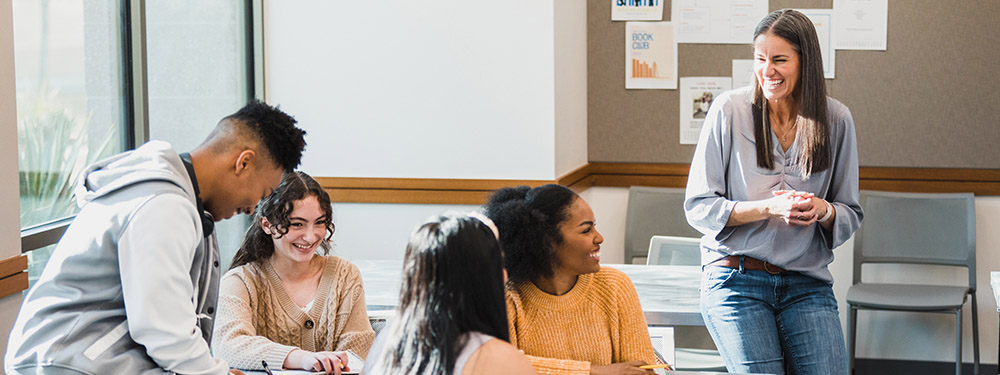
Saiqua Zaneb explains how Central Foundation Girls’ School have had a relentless, strategic focus on embedding student leadership in as many facets of school life as possible. This has empowered students to become future changemakers.
Here at Central Foundation Girls’ School we have had a very strong focus on leadership development in our students for many years now. A huge number of our students come from very disadvantaged communities and as a result do not have access to the experiences that they need to develop their leadership skills. We find that students often think of themselves as being in a ‘bubble’ at Central and create their own glass ceilings. They can be less aspirational because of imposter syndrome, a lack of confidence in their own ability and false perceptions of what university, apprentice programmes and the world of work would be like in the ‘wider world’.
In order to overcome these feelings, develop our students’ confidence and ensure that students know how to use their own voices, we have had a relentless, strategic focus on embedding student leadership in as many facets of school life as possible and empowering our students to become future changemakers.
The journey involved provisioning resources and CPD in order to develop staff confidence so that they could deliver purposeful leadership programmes but also look to the wider community and networks to see what leadership programmes would support in delivering on our purpose, within the confines of the budgets we had.
As the assistant headteacher responsible for student leadership, I branded our leadership programmes under the umbrella of Central Leadership and provided a starter pack which staff could use to start their student leadership group including things like a generic job description, an online application form and a generic branded PR template. Staff were also provided with a coaching (or where needed a mentoring) session to support them in working out the vision and direction of the programme, establishing key milestones and discussing any perceived challenges. This model worked very effectively, and we now run a total of 28 student leadership programmes across all key stages in the school.
We trialled the SSAT Student Leadership Accreditation (SLA) with a whole year 8 cohort. This was extremely successful and allowed students to develop not only their resilience and confidence but also become independent. The SLA ambassador role evolved, with our older students leading on the programme and being responsible for staff CPD and student induction, training and support. This is fully embedded now and runs through our tutor programme. As a result of this, the number of students engaging in programmes such as the Duke of Edinburgh Award in year 9 increased hugely, making us the school with the highest number of active participants on this course.
Our key stage 4 and post-16 cohort needed a different approach. These students were faced with greater urgency to make decisions about their next steps and the programmes therefore needed to be designed to ensure that we raised aspirations and supported students to deal positively with their internal narratives. We sourced companies such as the Catalyst programme through Near Neighbours, the leadership bootcamps through Unloc and the Changemakers alliance. These programmes allowed students to understand their own identity and what they bring to the table through working on individual/group projects that would result in impactful change. For example, a group of year 12s were successful in bidding for funding to develop a series of podcasts to support their peers in ‘Breaking the Barriers’ with the objective that these would be part of a legacy programme created by students for students.
We have started to see a huge impact of running these programmes. Students are able to more freely talk about imposter syndrome and what they bring to the table. At key stage 3 more students are wanting to take on responsibility and actively look to engage in student leadership programmes with a view to impacting change. A greater number of our post-16 students are willing to apply to Oxbridge and Russell Group universities’ and to believe in their own abilities.
This has been a long but rewarding journey. Constantly keeping the vision and purpose of why it was important to develop leadership in students at the core of our messaging was very important as was making sure that staff had a framework to support them without limiting them. If you are going to embed student leadership, it needs be approached strategically. The students will be your best ambassadors, so do not be afraid to look to them for support and ideas.
Find out more about SSAT’s Student Leadership Accreditation.
